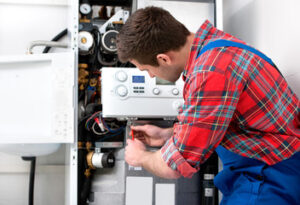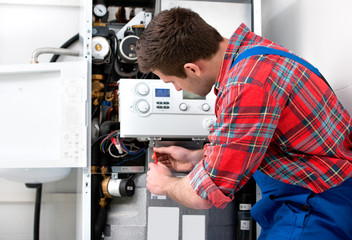When a heating system needs repair, it must be fixed immediately. Many symptoms indicate that your heater requires repair. Identifying these problems will help you schedule repair services as soon as possible. Delaying repairs will only stress the heater and increase your energy bills.
 Heating repair professionals are trained and experienced technicians who specialize in installing, maintaining, and repairing heating systems in residential and commercial buildings. They are equipped with the knowledge and tools to diagnose and fix issues with all heating systems, including furnaces, boilers, heat pumps, and more.
Heating repair professionals are trained and experienced technicians who specialize in installing, maintaining, and repairing heating systems in residential and commercial buildings. They are equipped with the knowledge and tools to diagnose and fix issues with all heating systems, including furnaces, boilers, heat pumps, and more.
Insufficient heat can be a result of a number of issues. A faulty thermostat, a broken furnace, a malfunctioning pilot light, or a leaky ductwork system could all be culprits. Low airflow across your furnace is another common problem. A clogged filter, a blockage in the ductwork or a broken fan motor can cause this.
HPD recommends residents contact their landlord or building management to report a problem before filing a 311 complaint. The agency says it responds to complaints by communicating with the property owner, sending an inspector to do a temperature reading and, in some cases, issuing a violation.
If your heating system is making strange noises that are not the normal hum of operation, it is likely an indication that there is a problem. These sounds could indicate something simple that you can fix on your own or something more serious that requires a heating technician to repair.
Rattling, clanging or banging noises coming from your furnace can be due to loose panels or ductwork expansion and contraction. Inspect the panels and tighten them if they appear to be loose.
If you hear a metal-on-metal grinding sound from your furnace, it could be a sign that the motor is slipping or the blower wheel is out of alignment. Having your furnace lubricated by a professional will solve this issue.
Dust is a nuisance that can impact your heating repair. It settles on your furnace’s or AC’s internal components, reducing its efficiency and raising your energy bills. It also can be a problem for your health. Dust particles can irritate your eyes, nose, and throat. They can trigger allergies, asthma, and other respiratory conditions.
There are many ways to reduce your exposure to dust and other airborne pollutants. They can even affect the functioning of your medical equipment. Some people are particularly sensitive to airborne dust particles.
Nails are often susceptible to cold temperatures, which can cause them to become brittle and chipped. Using the right nail care products, including acetone-free nail polish removers, can help keep your nails in top shape throughout the winter.
In addition, a condition known as hapalonychia can also weaken nails. Many different factors, including environmental conditions, genetics, nutritional deficiencies, diseases, medicines and trauma can cause it.
Cold temperature can also lead to a condition called Raynaud’s Phenomenon, which causes fingernails and toes to turn blue or purple due to reduced circulation. If this occurs, it’s important to see a dermatologist for a diagnosis.
A lot of skin issues can be confusing to understand, but one is especially vexing: dehydrated skin. It’s often conflated with dry skin, but they’re actually two entirely different conditions. While dehydrated skin has the same symptoms as dry skin, it lacks the oil to make it appear plump and smooth.
It also tends to be itchy and dull looking, with an uneven complexion and tiny skin lines. Luckily, dehydrated skin is usually a temporary condition that can be treated with simple lifestyle changes and topical products to help the body rehydrate itself. But severe cases of dehydration may need to be addressed by your doctor.
Perform regular maintenance. Regular maintenance can help prevent the need for heating repairs in the first place. Make sure to clean or replace filters regularly, and schedule an annual tune-up with a professional heating technician.
Don’t ignore warning signs. If your heating system makes strange noises, emits odd smells, or fails to heat your home properly, don’t ignore these warning signs. They could indicate a serious problem that requires professional attention.
Don’t attempt repairs you’re not qualified for: If you’re not experienced with heating repair, don’t try to tackle a complicated repair on your own. Please leave it to the professionals to avoid causing more damage or creating a safety hazard.
Follow the manufacturer’s instructions: When repairing or replacing heating components, follow the manufacturer’s instructions carefully. Please do so to avoid further damage or a malfunctioning system.
Use the correct tools: Make sure you have the correct tools for the job, and use them properly. Using the wrong tools can cause damage to the heating system or create a safety hazard.

